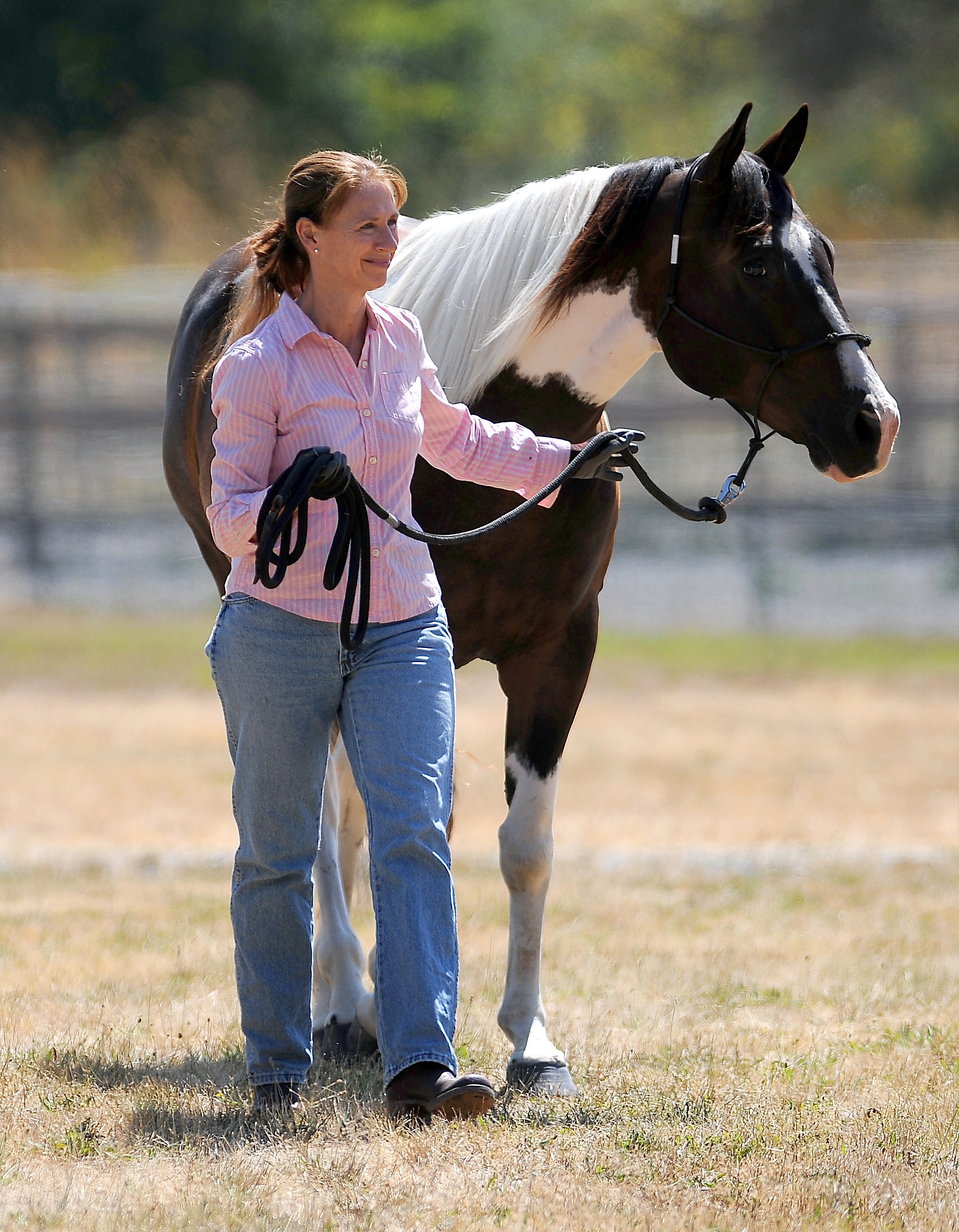JOINT BASE LEWIS-MCCHORD, Wash. - In a dusty ring at the Fort Lewis Riding Club, Debbi Fisher patiently worked with "Vision," a 7-year-old American Paint horse chosen for his gentle nature.
"I'm looking (for) a really nice, quiet disposition like Vision has," said Debbi Fisher, operations director of Rainier Therapeutic Riding. "Safety is foremost with Soldiers and the horses."
Soon, Fisher and Bob Woelk, RTR executive director, were surrounded by dozens of professionals from Warrior Transition Units and Family and Morale, Welfare and Recreation offices from around the western region who gathered beneath the shade of nearby trees to learn how RTR's "Horses for Heroes" could help wounded warriors.
The scene unfolded Aug. 19, toward the conclusion of a weeklong "Train the Trainers Program" overseen by Heidi Grimm of the U.S. Olympic Committee Paralympic Military Program, who was one of the Army's top female triathletes during the time earlier in this decade when she was stationed at Fort Lewis.
Equine therapy was just one of the adaptive sports programs showcased during the week at Joint Base Lewis-McChord. Participants also learned from experts in sitting volleyball, strength and conditioning, wheelchair racing, indoor and adaptive cycling, rowing and wheelchair basketball.
"It was actually a great representation of everything that (JBLM) had to offer," Grimm said. "The whole purpose of the week was to try and bring together a variety of different organizations.
"Not only do we bring in expert coaches, but we also bring in Paralympians. We do two different things. We do experiences, and we actually do training."
Riding programs for veterans of operations Iraqi Freedom and Enduring Freedom began at Walter Reed Army Medical Center in 2007 and spread to 10 installations across the nation, according to Woelk.
"So it's all relatively new," said Woelk, adding that he and Fisher began building the foundation for the JBLM program 2 1/2 years ago.
"We're going to be working primarily with post-traumatic stress and some traumatic brain injury cases," Woelk said. "It opens up a lot more opportunities, because the Soldiers are able bodied and fully physically capable. So we're not limited in that sense. It allows us to focus more on the mental aspects of dealing with fear."
At a North American Riding for the Handicapped conference last November in Fort Worth, Texas, Woelk and Fisher learned how horse therapy is helping veterans. Soldiers who had been through one such program spoke at the conference.
"It brought me to tears, listening to those Soldiers," Fisher said.
"By having them work with the horse, they actually learn to take control of a strange new experience and succeed in that," Woelk said. "So they gain a sense of confidence from that, taking control."
Opportunities to make such positive changes in the lives of wounded warriors keeps Grimm on the road. She was at West Point last week running another train the trainers program, and then it's off to Fort Campbell, Ky., in late September to repeat the process.
"You know, you might only help a handful of guys," said Grimm, "but ... overall it's going to make a big difference and a big impact.
"We firmly believe that physical exercise really does help a person heal mentally and physically."
This article appeared in Joint Base Lewis-McChord's weekly newspaper, the Northwest Guardian.










Social Sharing